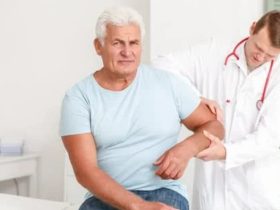Suffering from an injury can be a challenging experience, but with the right approach to recovery, you can regain your health and well-being. Whether it’s a minor sprain or a more serious injury, here are five essential tips to guide you through the recovery process.
Get Complete Treatment Right Away
The first step in recovering from an injury is to seek prompt and comprehensive medical treatment. Consult a healthcare professional or visit an urgent care center or hospital to assess the extent of your injury and receive appropriate care. Follow their recommendations for treatment, which may include medications, physical therapy, rest, or other interventions. Consult with the doctors and get the best treatment for your injuries such as knee ACL reconstruction.
Don’t delay seeking medical attention, as early treatment can prevent complications and speed up the healing process. Follow your healthcare provider’s instructions closely, attend follow-up appointments, and ask questions if you have any concerns about your recovery.
Do Not Stop Your Life
While recovering from an injury may require modifications to your daily activities, it’s important not to put your life on hold entirely. Stay engaged in activities that you can safely participate in, such as light exercises approved by your healthcare provider, hobbies, social interactions, or work responsibilities if feasible.
Maintaining a sense of normalcy and routine can contribute to your overall well-being and mental health during the recovery period. Stay positive, set realistic goals for yourself, and focus on gradual progress rather than rushing back to full activity before you’re ready.
Follow a Healthy Diet Routine
Nutrition plays a crucial role in supporting the body’s healing process after an injury. Follow a balanced and healthy diet that includes a variety of nutrient-rich foods. Incorporate fruits, vegetables, whole grains, lean proteins, and healthy fats into your meals to provide essential vitamins, minerals, and antioxidants.
This means you should eat regularly but don’t overeat in stress. If needed, you can get residential eating disorder treatment. Stay hydrated by drinking plenty of water throughout the day, and limit your intake of sugary beverages, processed foods, and alcohol. Proper nutrition can boost your immune system, promote tissue repair, and improve overall recovery outcomes.
Consult a Therapist
Depending on the nature of your injury, consulting with a physical therapist, occupational therapist, or mental health therapist can be beneficial. A physical therapist can design a personalized exercise program to help restore mobility, strength, and flexibility. They can also teach you safe techniques for movement and activities of daily living.
An occupational therapist can assist with regaining independence in daily tasks, such as dressing, cooking, or driving, if your injury has affected your functional abilities. They can provide adaptive strategies and recommend assistive devices to facilitate your recovery and improve quality of life.
Don’t overlook the importance of mental and emotional well-being during the recovery process. If you’re experiencing stress, anxiety, or depression related to your injury, consider consulting with a mental health therapist. They can provide support, coping strategies, and resources to help you navigate the emotional challenges of recovery.











